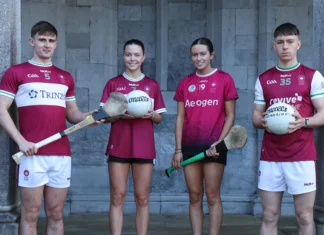NUI Galway is launching the third phase of its nationwide survey on the impact the coronavirus and public health restrictions are having on everyday life, this time asking people if they would install a contact tracing app if it helped bring the lockdown to an end.
Multiple countries including Singapore, South Korea and Australia have already rolled out some form of a contact tracing app to trace how the coronavirus spreads in communities, and alert people if they have come in contact with an infected person.
The apps rely on either bluetooth or GPS technology to track mobile devices and their users, but concerns have been expressed both about the limitations of these technologies, and the privacy implications of such an app.
The Corona Citizens Science Study is a joint research operation by NUIG, the Insight Centre for Data Analytics at NUIG, and DCU.
“We want to look at the lock-down, and how people think we might move out of it, and in particular to get some idea of whether an app would be acceptable as part of this,” said Prof. Anthony Staines of DCU, joint project lead.
“How do people balance privacy and contact tracing? How does our very real digital divide affect this?.”
The HSE is aiming to release a contact tracing app for smartphones by the end of May CEO Paul Reid has said.
The app development process in Ireland is going down the route of storing all data on your device rather than sending it to a government server.
Survey
Phase 3 of the Corona Citizens’ Science Study will commence tomorrow, Wednesday, May 6 at 6am, and will remain open for 24 hours.
Along with asking about people’s opinions on using a contact tracing app if it helped lift public restrictions, the survey will also look at the rate of interaction between teachers and school children.
Previous survey findings showed that over a third of respondents were now home-schooling their children and 55% said that their children are losing motivation to keep up their education at home.
Further clarity will be sought on the nature of the delayed medical treatments and check-ups reported by almost a third of people in Phase 2 of the survey.
Researchers are also keen to gauge the state of emotional well-being among people and will ask about the general levels of anxiety and the specific issues causing this.
Dr Akke Vellinga, Epidemiologist at NUIG said “We are keen to get a sense from the general population on how well or poorly their understanding is of the government’s phased plan to relax restrictions.”
“Furthermore, we want to gain a deeper understanding of the rationale for the postponing of medical treatments, which we believe has huge ramifications further down the line.”
The full findings of Phases 1 and 2 of the survey can be found here.













